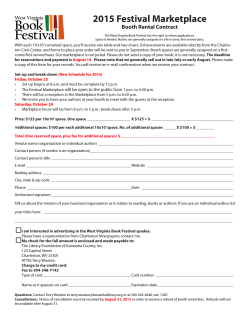
Brief - Carnegie Endowment for International Peace
BRIEF APRIL 2015 THE NEW GLOBAL MARKETPLACE OF POLITICAL CHANGE ABOUT THE AUTHORS T H O M A S CA ROT H E R S A N D O R E N SA M E T- M A R RA M Thomas Carothers is vice president Western democratic powers are no longer the dominant external shapers of political transitions around the world. A new global marketplace of political change now exists, in which varied arrays of states, including numerous nondemocracies and non-Western democracies, are influencing transitional trajectories. Western policymakers and aid practitioners have been slow to come to grips with the realities and implications of this new situation. for International Peace. He is the for studies at the Carnegie Endowment founder and director of the Democracy and Rule of Law Program and oversees Carnegie Europe in Brussels. Oren Samet-Marram was previously a junior fellow in the Democracy and Rule of Law Program at the Carnegie Endowment for International Peace. New Marketplace Realities A transformed transitional era. Despite overall global democratic stagnation since 2000, the era of widespread national-level political flux that marked the 1980s and 1990s has not ended; its character has simply evolved. It no longer has any overarching directionality, with countries moving as often away from democracy as toward it or into civil war as out of it. A widespread phenomenon. The marketplace is not limited to high-profile hot spots like Syria, Ukraine, and Yemen. Competition for influence among diverse external actors impacts all countries experiencing fundamental political change. A new normal. The marketplace is not a temporary condition. It is a fundamental feature of the changed international political order that is emerging as a result of the global diffusion of power away from the West to “the rest.” How States Operate in the Marketplace Motivations are complex and often nonideological. Framing the marketplace as a contest between democracy promotion and autocracy promotion would be erroneous. The motivations of governments seeking to shape political change in other countries are highly diverse and hard to neatly categorize. Methods of influence are increasingly forceful. The marketplace is characterized by the widening use of intrusive methods, especially military force and political cash on the part of nondemocracies. Non-Western democracies usually hew to softer methods and often try to act through multilateral institutions. Marketplace power is asymmetrical. Fueled by a perception of urgent national interest and taking advantage of local ties and knowledge, relatively weak countries are sometimes able to exert significant influence on transitions near them, rivaling or even outweighing that of major Western powers. Pushback is a by-product. As competition for influence widens and intensifies, a growing number of countries are pushing back, not only against Western powers, but against all states attempting to exert crossborder political influence. Rules are scarce. The new global marketplace is a rule-less domain in practice. The many different states reaching across borders to influence the political life of other countries do not conform to any shared set of norms, principles, or standards regulating the permissible forms of action. CONTACT Christopher Dockrey Government Affairs Manager +1 202 939-2307 cdockrey@ceip.org Clara Hogan Media Manager +1 202 939-2241 chogan@ceip.org CARNEGIE ENDOWMENT FOR INTERNATIONAL PEACE The Carnegie Endowment for International Peace is a unique global network of policy research centers in Russia, China, Europe, the Middle East, and the United States. Our mission, dating back more than a century, is to advance the cause of peace through analysis and development of fresh policy ideas and direct engagement and collaboration with decisionmakers in government, business, and civil society. Working together, our centers bring the inestimable benefit of multiple national viewpoints to bilateral, regional, and global issues. © 2015 Carnegie Endowment for International Peace. All rights reserved. The Carnegie Endowment does not take institutional positions on public policy issues; the views represented here are the authors’ own and do not necessarily reflect the views of Carnegie, its staff, or its trustees. CarnegieEndowment.org @CarnegieEndow facebook.com/ CarnegieEndowment
© Copyright 2025





















